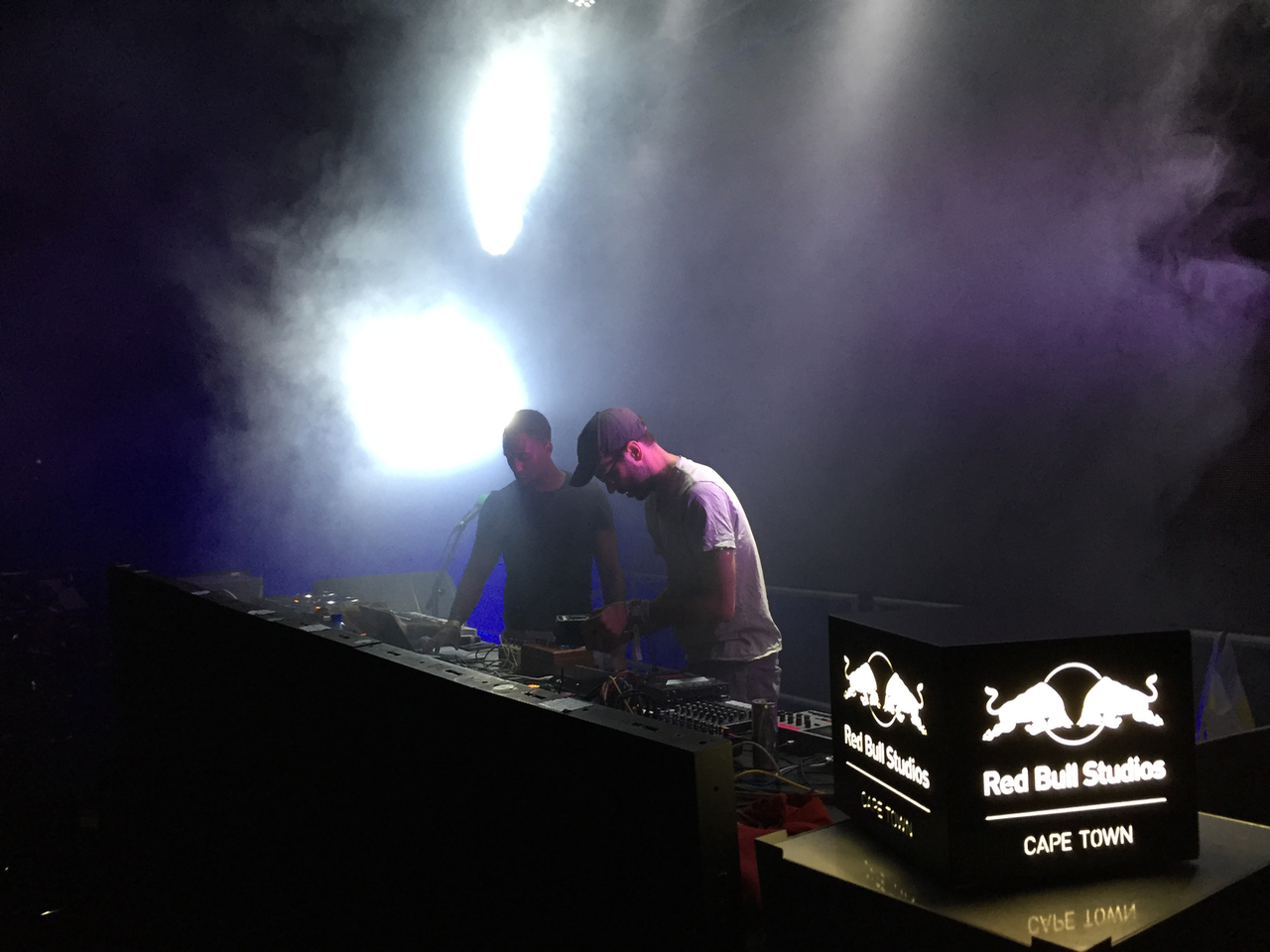When you are in the mood to dance, there is nothing better than walking on to the dance floor and feeling the vibrations of the music coming through the speakers. Cukia Kimani and Yann Seznec found a way to enhance this experience by creating visual permanence to music.

Cukia has a background and Computer Science and Digital Arts while Yann has a background in music composition. With their project titled Painting w/Music, they let curiosity and their willingness to experiment take the lead. When asked about how this was done, Cukia replied, “Coming from a Computer Science background I know about all of these different algorithms and then I did visual arts. You know, how to put algorithms to make circles appear all over the screen based on random numbers. But then I was like ‘What happens if I just change this one value to be midi data or frequency data?’” And this was the foundation of the project.
When Painting w/Music was originally pitched to the British Council, the idea was for Cukia to create visuals based on music that Yann would compose. This would be done by feeding the music into the programming code that Cukia had written. However, as the months passed and Cukia and Yann became more familiar with each other’s work, they decided to add in a new element to their project – a custom controller.

The controller creates room for a performative, interactive level to their larger project. This allowed those who were interested in the project to be more than just passive observers. Instead they would be able to experiment with how the project works. When reflecting on this addition to the project Yann explained that, “The main thing was moving towards a performance tool which is something I really like working with so I guess this is what happens in a collaboration. You start with an idea and each person involved brings or pulls the project in a way that they are interested in exploring. I think we both ended up being really interested in this idea of building a tool that was kind of applying these ideas of kind of visual permanence of music to a performance. It is also fun because then it means that we can do a performance at the end which was a cool focus for the project.”

This evolution of the project made it possible for them to be on the lineup at this year’s Fak’ugesi African Digital Innovation Festival. With Yann taking control of the music and Cukia managing the coding side of the performance, the audience was drawn on to the dance floor by flashing colours and shapes dancing across the screen along with them. “The core concept was to play a whole set of music, tunes and improvisations that were created entirely with this custom controller box that was built for the project. And then all of that, the music and my actions, the buttons I pressed and the things that I twisted and pulled, all of that created these visuals,” Yann explains.
Excited by how far their project has evolved since their initial idea, Cukia and Yann expressed that this is unlikely the end of the project. Their curious nature will more than likely see them pushing their project even further.

Check out their YouTube to have a look at some of the visuals they have created.
‘This article forms part of content created for the British Council Connect ZA 2017 Programme. To find out more about the programme click here.











